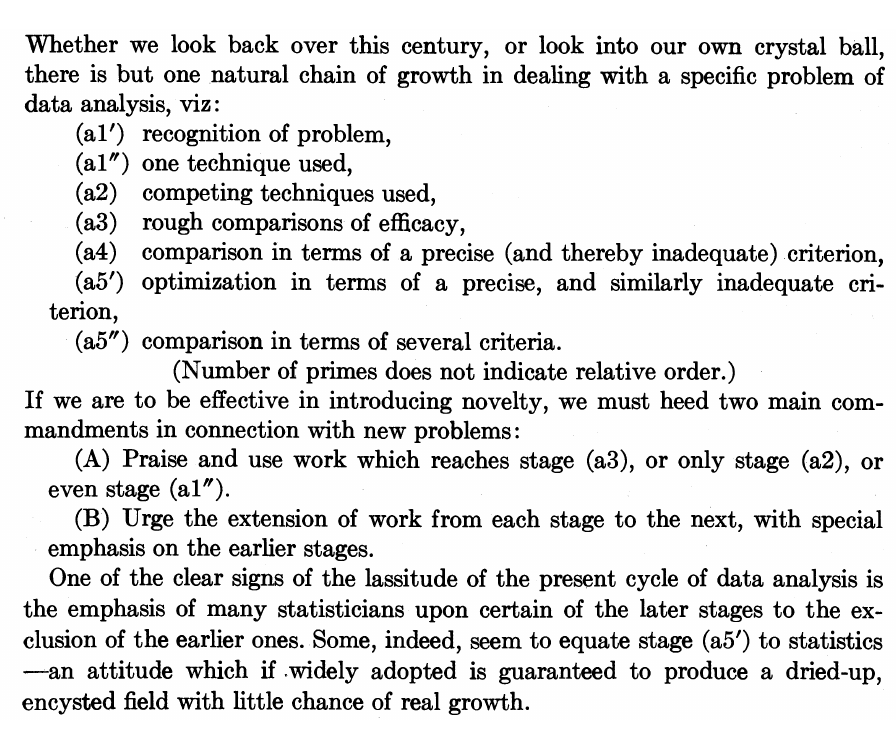I was reading The future of data analysis by Tukey (tukey1962future) recently and found the following under a section on Dangers of optimization. 1

Tukey here was pointing to certain ossifications hindering rapid growth and novelty in the then field of Data Analysis.
Leaving aside the concern of acknowledging all the stages, there is something about their independence which is a real efficacy booster if pieces from others' work can be composed together easily. More so if you break these stages in finer pieces of partial works. For theoretical works, there is nothing specific, at the moment, needed other than a will. But for computational works, in Machine Learning for example, this translates to nice composability properties in research code repositories.
A mild example that I have recently noticed is in Kaldi where there are lots of recipes (egs) sitting in a similar environment (executable binaries stitched in bash) so as to allow such on-top-of researches. There are many attempts 2 in the direction of promoting reuse but we can totally do better. Similar to what we have been doing for reproducibility, we can try promoting a sort of composability (a strict superset) documentation in all our outputs. This of course is related to good program structure and consistent vocabulary for input/output. But, more importantly, it forces us to spend plain thinking time on how our work can be composed with others' for possible future results. This has a few implications in the way we work, write and share. As a crude example, the future work section of papers can more explicitly map to extension points in our programs. We will also see more use of forks, submodules and dependency networks.
There are many piecemeal directions already taken here. Consider the popular
bring-your-own-dataset idea, although mostly in third party instead of reference
implementations. Similar is sharing of trained models. On the extensibility
front something like starting your own research section in
disentanglement_lib3
(locatello2018challenging) is a nice example.
The most effective composable systems are philosophically consistent. Examples are environments like *nix shell, Lisp machines, Smalltalk images etc. Equivalent in effect are labs, groups and communities with pervasive codebases, conventions and guidelines. This is hard to do at scale though. I don't quite believe the utopia where people point to some \(n\) works/paper/repositories, mix their own ideas at very high level and start analysing results is possible, specially for researches since they produce prototypes by design. But we might be able go surprisingly far from where we are if we align some of our code and prose efforts in this direction.